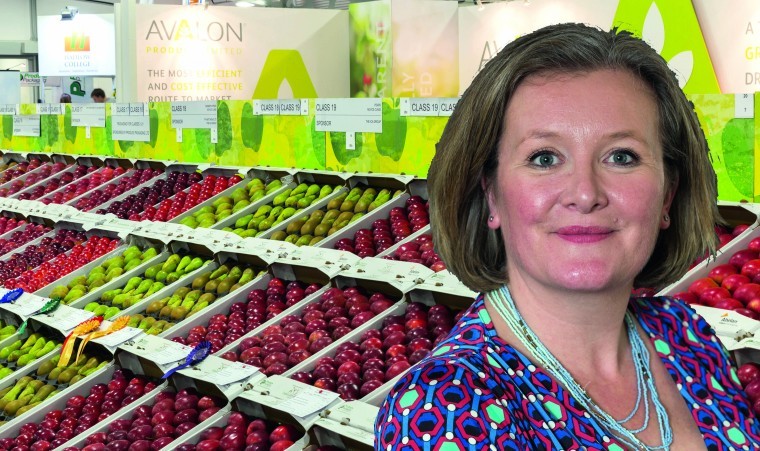One of the interesting groups I belong to is the awards council for the Fruiterers company. This is a group of livery members who volunteer time to evaluate and facilitate research projects, travel bursaries and grants to worthy recipients in our sector and is made up of a truly impressive bunch of people, dedicated to ensuring that our modest grant fund is used to best advantage.
When we meet, we always have several research proposals to evaluate and it was an absolute joy when Dr Bethan Shaw submitted a paper to the Fruiterers’ awards council that had a little humour in the title, as well as a novel proposal to solving a big issue. Formally the paper is entitled Good vibrations – developing and testing the efficacy of biotremology as a control strategy to disrupt mating/reproductive success in Lygus rugulipennis and Drosophila suzukii in strawberry.
The UK soft fruit industry faces several challenges, including uncertain chemical pesticide approvals, the loss of actives (and associated insecticide resistance), emerging and invasive pests and climate change, which can result in higher insect pest populations as well as unpredictable outbreaks. Effective alternative approaches to pest control are therefore required to prevent a reliance on chemical control.
The invasive Spotted Wing Drosophila and capsid European Tarnished Plant Bug (ETPB) are both serious pests of commercial strawberry in the UK, having the potential to reduce marketable yields of fruit by 50% and more if left uncontrolled (AHDB, SF 174 report 2021).
Biotremology, the study of mechanical vibrations and their effect on organism behaviour, has revealed that some insects, including ETPB, use vibration signaling at mating time. Bethan proposed that perhaps all the structures involved in modern soft fruit production (this included the tapes, the metal structures and the plants themselves) could be used as one enormous mating disruption system. The trial was not as successful in dissuading either pest from laying eggs in the field situation as it was in the lab, but there were some real positives and a clutch of second stage proposals that will be investigating the application of ‘good vibrations’ in messing up the lives of other pests in other crops.
Lemons are being commercially grown in the UK now. The livery has been supporting the Thompson’s Innovation Centre; recognizing that now is a good time to be planting trees, Pete Thompson and his team have been supported by the livery in exploring alternative tree crops for the UK.
Calamondins (a bitter orange citrus) and lemons in unheated tunnels, along with groves of olive trees, are now a productive feature of his operation, with Meyer lemons and other novel varieties of citrus like finger limes now being introduced. Meyer lemons have proved very productive and successful first tastings and product assessment with a major UK retailer have taken place. Further discussions are ongoing in partnership with a Fresca subsidiary, supplier of fruit to the retailers.
Under consideration is a new, purpose-built facility to provide a soil-grown, naturally lit protected environment to produce commercial quantities of UK lemons for retail sales. The new grove of olives has established well, with no trees lost and a good ground cover of specially selected grasses and perennials. British olive oil has amazing depth of flavour and colour; the trees are hardy too, though still susceptible to a bad frost. Perhaps a crop to consider in the future – anyone with an oil-bearing crop this year is in a strong position, after all…




